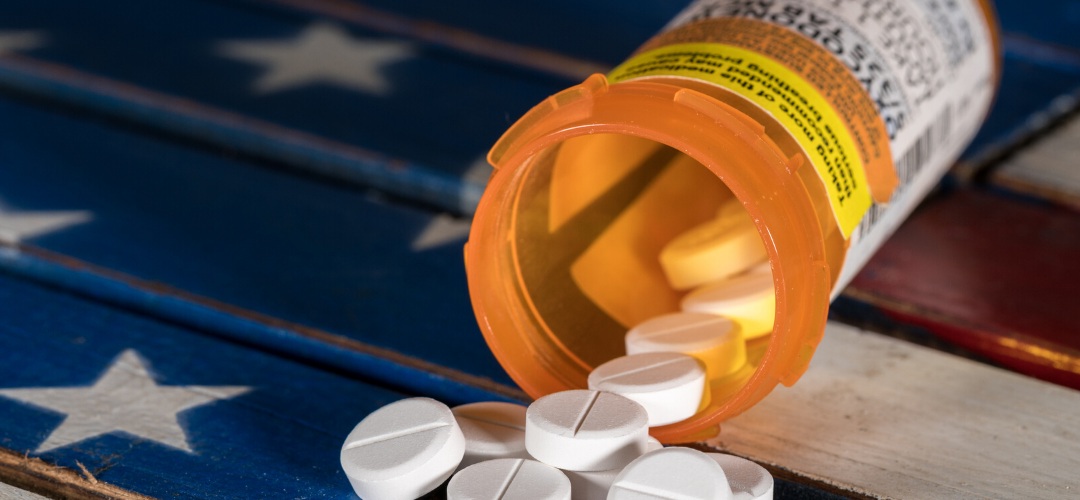by Gabriel Levitt, President, PharmacyChecker.com and Prescription Justice | Jul 10, 2020 | Counterfeit Drugs
I have written extensively about how the pharmaceutical industry and its allies deceive the public by conflating the issue of counterfeit drugs with safe, more affordable prescription medicines that Americans purchase online and import for personal use. One of the industry’s main tactics is to make the counterfeit drug problem look as big as possible. They then falsely connect it to Americans buying legitimate meds online and as an excuse to oppose prescription drug importation in general. They do this through industry-funded groups and researchers.
A non-profit organization, funded by drug company Eli Lilly and other industry sources, called the Alliance for Safe Online Pharmacies (ASOP) has a page called “The Global Fight Against Illegal Online Pharmacies and Counterfeit Medicines.” It states: “Worth $200 billion a year, the market for counterfeit pharmaceuticals now eclipses almost everything in the underground economy, including prostitution, human trafficking and illegal arms sales.” On that same page, it goes on to report how ASOP is educating the public about “Canadian online pharmacies and drug importation” and “how the legalization of importation of prescription drugs from Canada and other foreign countries would endanger consumers by threatening the protections provided by the Drug Supply Chain Security Act of 2013.”
Where did that number, $200 billion come from?
It’s a vicious circle of seemed “authority.” Basically, a statistic appears in a seemingly authoritative article or even scholarly report. A citation appears with that statistic, but it is rarely checked or questioned because the authority is trustworthy enough. Then, the media sees that statistic and regurgitates it over and over and over again. In the case of this $200 billion figure, the story is no different.
(more…)
by Gabriel Levitt, President, PharmacyChecker.com and Prescription Justice | Jul 2, 2020 | Drug Importation
According to a study published in the Journal of the American Medical Association (JAMA), 1.5% of adults in the U.S. who take prescription drugs purchase them from outside the U.S. to save money each year. That’s about 2.3 million people. In 2016, my review of a similar set of data estimated about four million per year. The Kaiser Family Foundation’s 2016 poll data was used to support an estimate showing that 19 million people, 8% of the adult population, have imported lower cost prescription drugs for personal use. What’s going on?
The JAMA study authors used 2015-2017 government data from the U.S. Centers for Disease Control and Prevention, National Center for Health Statistics, National Health Interview Survey (NHIS), which collected an assortment of health information from 61,238 individuals. As explained in the JAMA study:
“Survey respondents were asked whether they bought prescription drugs from a country other than the US to save money during the past 12 months. We defined respondents as purchasers of medications outside the US if they answered yes to the question.”
Past estimates, including my own, have also used NHIS data but may have extrapolated incorrectly. The percentages should be applied not to the general adult population but to those who take prescription drugs. The adult population is about 256 million. In this study, the sample population of 61,238 represented 152.2 million people who take prescription drugs. The JAMA study found that 1.5% purchased medications outside the U.S. to save money, which comes out to about 2.3 million. My past estimates looked at 1.6%, which was an earlier NHIS estimate of adults who import, of 256 million people, which came out to a little over 4 million people.
(more…)Tagged with: JAMA, Kaiser Family Foundation
by Gabriel Levitt, President, PharmacyChecker.com and Prescription Justice | Jun 26, 2020 | Drug Importation
Canada is a good option for Americans seeking to access their medications at a lower cost through personal drug importation, but even I agree with the pharmaceutical industry when they say that wholesale drug importation on a large scale is not workable with Canada. Why? Simply because Canada is too small a nation to supply the U.S. market. I have written that there is much more promise if importation is expanded to the European Union. We already rely on the EU to assess U.S. drug safety, and current events have only brought that into greater focus.
Due to the world’s efforts to quell Covid-19, Regulatory Focus reported on increased cooperation between the U.S. Food and Drug Administration (FDA) and the European Medicines Agency (EMA). These drug regulators have engaged in regular consultations since 2003 in order to share insights and best practices. In 2014, that same cooperation led to the creation of Mutual Recognition Agreements (MRA). Due to an MRA between the FDA and EMA, the U.S. can rely on EU inspections of drug manufacturing establishments in any EU country. That means we have a lot of faith in EU pharmaceutical safety standards.
(more…)
by Gabriel Levitt, President, PharmacyChecker.com and Prescription Justice | Jun 19, 2020 | Politics and policy
The World Health Organization is really on my mind. Last week, I noted my overall support for the WHO but pointed to weaknesses in its approach to research and studies about online pharmacies. Then, two days later, I read The New York Times Editorial Board’s take in an article called Don’t Leave the W.H.O. Strengthen It, and I just have to recommend you read it.
President Trump has stated that we will withdraw from the WHO, stating things about the organization that are not true – but also making legitimate criticisms. Do we quit the Department of Health and Human Services or the U.S. Food and Drug Administration because of their many failures? I mean on the political fringes of U.S. politics, anarchists and free market fanatics, you might find some support for quitting the federal government! But no, we need those government entities to protect and improve our health as a nation. There are many areas of public health, however, that we can’t deal with effectively alone as one country, and that’s where the WHO is really needed. Say, for things like… um, er, let me think… global pandemics.
(more…)Tagged with: coronavirus
by Gabriel Levitt, President, PharmacyChecker.com and Prescription Justice | Jun 12, 2020 | Drug Safety
Generally, I strongly support the World Health Organization (WHO) and its unambiguously important work to save lives through its public health efforts. The backlash against it in the U.S. is simultaneously misguided and politically motivated. I know why. It detracts from our failures in the U.S. to save lives, but there is more to the story. Republicans generally have a greater hostility to international organizations because they view them as tying our hands and/or taking our money to help people in poorer countries. The argument is that U.S. foreign policy must be about U.S. national interests not some idealistic notion of global cooperation.
But here’s the thing. The WHO plays critical roles in polio eradication, vaccines for preventable diseases, providing essential healthcare services, public health surveillance, emergency operations, and, yes, preventing and controlling outbreaks. Here’s a great fact-check document about WHO, specifically its efforts to bring the world together to combat Covid-19. Those efforts do protect and promote our national interests by bringing greater global political stability.
(more…)
by Gabriel Levitt, President, PharmacyChecker.com and Prescription Justice | Jun 4, 2020 | Big Pharma
Using very similar talking points to Big Pharma-funded experts, in its quest to “educate” the public about the dangers of internet pharmacies and personal medicine imports, the National Association of Boards of Pharmacy (NABP) appears to have ignored the greatest pharmacy-related public health travesty happening right under its nose. Since the beginning of this century, billions of prescription opioid pills were wrongly, and in many cases unlawfully, pushed on and distributed to Americans. The result is about 500,000 deaths since 1999. The main culprits in sowing this drug epidemic are usually identified as big pharmaceutical companies and distributors.
Citing the case of the Rochester Drug Cooperative, I have asked before where the NABP was in tackling this opioid crisis. I was mostly referring to its quasi-regulatory role in certifying wholesale pharmacies through its Verified-Accredited Wholesale Distributors (VAWD) program because all major distributors accredited through VAWD – AmerisourceBergen, McKesson, and Cardinal Health – have been implicated in the opioid epidemic. As reported in the New York Times last week, a new court filing provides details showing how major U.S. pharmacy retail giants – including Walgreens, CVS, Rite Aid, and Walmart – were “as complicit in perpetuating the crisis as the manufacturers and distributors of the addictive drugs.”
(more…)Tagged with: NABP, opioids








